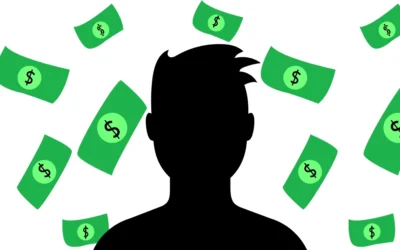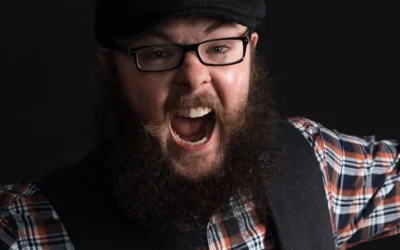When Kid Cudi’s 2009 album Man on the Moon: End of Day was released, it was widely-received as a drug-influenced album. Many songs make frequent overt references to drug use. The music video to “The Pursuit of Happiness” stars Cudi going through what is an obvious psychedelic trip. Cudi admitted in a 2009 interview with Blackbook Magazine that it works best as a companion for drug-addled nights.
“My album definitely needs to be heard loudly,” he said, “but it’s also a great album if you’re smoking and you need to go to sleep.”
Cudi has arguably spent the rest of his career trying to chase those same highs. Nothing else after Man on the Moon has been met with the same critical reception. His recent release Speedin’ Bullet 2 Heaven was a highly experimental affair that diverged completely from what modern audiences knew of Cudi.
It bombed with both critics and fans, earning a 4/10 on Pitchfork, deemed “a failure, and not even a noble one.”
One thing is clear: fans want the “old Cudi” back, and some think his drug use is the key. Never mind that he compared his five-year struggle quitting drugs as being akin to “living a nightmare” as recently as March 2016.
“People don’t know how real it was,” he said in an interview with Billboard. “I have everything I ever dreamed of in terms of stability, but I hadn’t been living that reality, because depression was fucking me up.”
Public criticism
Scroll down the comments of a YouTube video featuring any popular rapper and you’ll likely read the following: “They’d make way better music if they were on drugs again.”
It’s the same sort of armchair psychology that fuels commentary about politicians, athletes and anyone in the public eye.
It gets different when you delve into musicians and creatives, though — especially those who have had their creative peaks tied to drug habits. It’s a different kind of debate that’s all the more unsettling.
“It’s absolutely disgusting,” said Paul Thompson via email. Thompson is a Los Angeles-based rap critic who has written for publications such as Rolling Stone, Pitchfork, Spin and XXL.
“It treats artists as something less than human to be kicked around for an audience’s amusement; in rap, the added racial baggage goes without saying. Honestly, anyone who believes this, much less says it out loud, doesn’t deserve that artist’s work.”
Drugs have played a heavy part in music, and their roles and relationship have been heavily romanticized by the media, the music industry and, in large part, by musicians themselves.
When struggling to explain a problem none of us are really qualified to explain, people take faith in simple explanations.
Fans, however, don’t often consider the negative implications drugs can have. Fans don’t consider that these drugs have real-life consequences.
Real repercussions
Lil Wayne suffered numerous seizures in 2015 and 2016, with his abuse of the popular concoction lean being the main suspect. Lean is comprised of cough syrup and a soft drink in a styrofoam cup with the occasional Jolly Rancher on top.
But it’s the same drink that killed the father of the chopped and screwed sound, DJ Screw, in 2000, rapper Pimp C in 2007 and A$AP Mob co-founder A$AP Yams in 2015. Despite this heavy shadow, lean still has a seductive allure for both rappers and fans alike.
“Codeine Crazy,” arguably Future’s best song, lies somewhere between painting an accurate portrayal of the drink’s effects and glorifying it. Macklemore admitted to getting into lean partly because “that’s the same stuff Weezy’s sipping” in his song “Otherside.”
There’s some basis in drugs serving as creative fuel. Dr. Alain Dagher, a neurologist at the Montreal Neurological Institute, broke it down in a 2014 interview with VICE. He explained that low doses of many drugs and alcohol can cause just enough disinhibition to spark creativity.
“There’s another way drugs can make you more creative, which is going beyond disinhibition,” he said. “That is, making conceptual links in your brain between things that you may not normally link. Part of creativity is being original. So drugs like cocaine, and perhaps heroin, have that ability to make you have original thoughts.”
The drawbacks to one’s health, however — not to mention the amount of time spent wasted in the throes of addiction — have been shown to be so severe that going through the process makes it far too risky to continue.
Mindset shift
Thompson derided the link between drugs and creativity as a popular myth that is, at best, unreliably true, arguing that examples such as Lil Wayne, whose creative peak coincided with heavy drug use, reside in a small minority.
“More often,” he said, “a drug habit is a creative hinderance.”
For fans, the drugs serve as an easy fix-it once an artist falls off, completely ignoring that there’s likely a very significant reason the artist kicked those drugs in the first place.
“No one really knows how to talk about the fall-off, because no one really knows how it works,” Thompson continued. “People say things like, ‘Well, he/she has nothing less to talk about,’ but experience isn’t the currency of good writing — execution is. When artists fall off, fans search for reasons, search for meaning, and often land on drugs, or a lack thereof.”
Everyone engages in barbershop talk with music — who’s the best, or who’s hot. But the dark side of these discussions reduce artists into playthings for the audience’s curiosity, robbing them of their humanity in the process.
The popular idiom of needing a damaged upbringing to become a successful comedian has never applied so well as to the life of a musician. Great art is supposed to emerge from pain and struggle, right? If that’s a myth we can easily dispute, why do people continue to insist upon romanticizing this harmful relationship?
“When it comes to musicians and artists, we too often treat those people as commodities, as opposed to real people, to begin with,” Thompson said. “So any sort of real empathy for their mental health gets pushed to the side.”
Turning a blind eye to these struggles can lead to disastrous effects. At best, you might get a lasting, impactful work of art. At worst, it enables incredibly destructive habits, normalizes reductive behaviour, and plays into a harmful narrative.
Both critics and fans would do best to avoid relying on tired concepts. Musicians aren’t meant to be treated as drug-addled, tortured geniuses. They’re human, and when it comes to the treatment of their mental health, it ought to be written about and discussed as such.




0 Comments